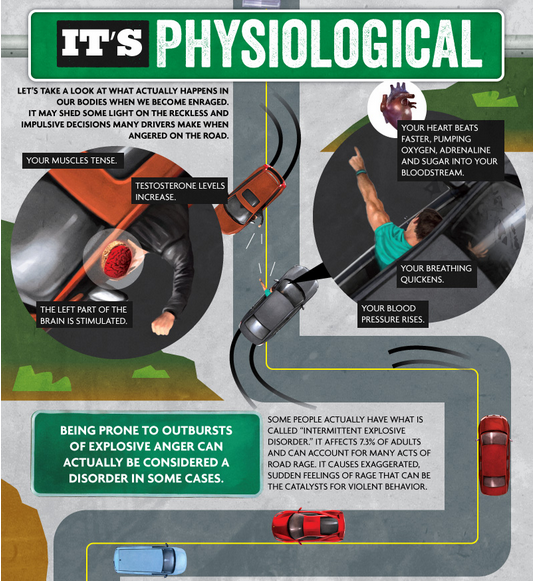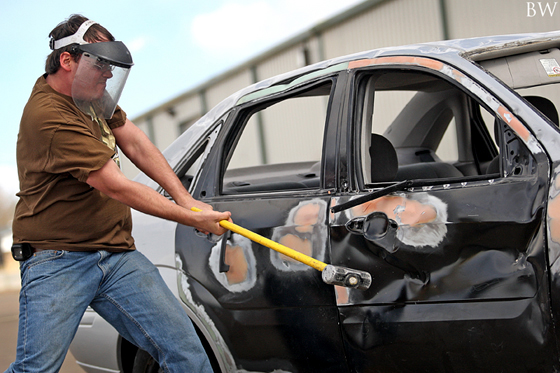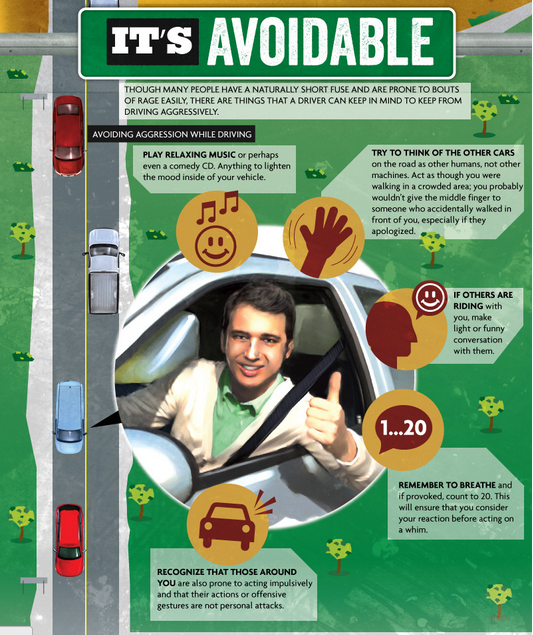What Happens In The Mind Of A Road Bully
There are reasons why road bullies can go from happy to rage in seconds.
It is no secret that road rage is a problem in Malaysia as a string of road bully cases hit the newsstands
Road rage can start from actions like tailgating and finger flipping, but it can also quickly escalate to fatal extremes
You see it every day on our roads: people speeding past; changing lanes with no signal; weaving dangerously across three and four lanes; passing too closely on either side of your car; speeding up to block you out; not allowing you to change lanes or merge on or off the highway; racing other drivers (i.e., two maniacs who think car-handling skills are better than they actually are); roaring up behind as if they might intentionally rear-end you; constant tailgating; horn honking; flashing high beams at your mirror when you are in “their” fast lane; finger flipping; screaming out the window; causing or creating accidents; pulling over to fight; or worse, kill the other driver.
Congested roads, busy schedules, and idiots on the road are a fact of life. But road rage can escalate, to fatal extremes, very quickly. Urban planners and neuroscientists alike have studied the external and internal factors that contribute to aggressive, reckless, and vengeful driving. They’ve shown just how complicated and contagious it is, and how there’s no easy answer to such a persistent problem.
psmag.comA typical road rage incident happens when something triggers an aggressive reaction a driver
A typical road rage incident happens when at least one driver chooses to act out in anger. Usually, the driver is already feeling stress when something triggers an aggressive reaction. Many road-rage drivers reported being under duress in other areas of their lives, like work or relationships, all of which contribute to a driver's stress level, making him more vulnerable to engaging in irrational behavior.
It is a physiological response: Testosterone levels increases, stimulating the left brain, increasing blood pressure, and pumping adrenalin into the bloodstream.
Some road bullies have Intermittent Explosive Disorder (IED), a behavioural disorder that makes individuals burst out into extreme expressions of anger that is different from their usual behaviour
Intermittent explosive disorder (IED) is a behavioral disorder characterized by extreme expressions of anger, often to the point of uncontrollable rage, that are disproportionate to the situation at hand. Impulsive aggression is unpremeditated, and is defined by a disproportionate reaction to any provocation, real or perceived.
Emil Coccaro, a professor and psychiatrist at the University of Chicago, has studied Intermittent Explosive Disorder (IED) for many years. People with this disorder repeatedly respond with violent or verbally aggressive outbursts, disproportionate to any given situation. (Not all road-ragers have IED, but road rage can be a symptom of it.)
psmag.comHe says that the psychological root of this behavior is often something called Hostile Attribution Bias—the belief that every accidental injury or threat is purposeful, and personal. People with IED over-personalize every interaction, and then over-react with immediate aggression.
psmag.comHuman beings are territorial and their car is an extension of this territory. People also have a tendency to forget that driving is a communal activity, focusing on their own needs and emotions instead.
Simple: "Human beings are territorial ... The car is an extension of this territory," according to AAA. True that. Plus, as a 2008 study found, humans crave violence just like sex. For many of us, our cars are an extension of our personality, and it might be the most expensive possession we own.
Driving is also a communal activity. You might think of driving in terms of your own individual experience. But once you pull into traffic, you've joined a community of other drivers, all of whom have their own goals, fears and driving skills.
Psychologists Dr. Leon James and Dr. Diane Nahl say that one factor in road rage is our tendency to concentrate on ourselves while dismissing the communal aspect of driving. It's very easy to perceive another driver's actions in terms of how it affects us, which in turn makes it easy to transition into anger
Being in the driver's seat of a car gives the driver a heightened sense of power. The feeling of entitlement and self-righteousness can give people the perception that whoever makes mistakes needs to be punished.
Coccaro explains the unique psychological effect of being in the driver’s seat of a car, which can be akin to a state of denial, combined with a heightened sense of power.
psmag.comMany people feel a sense of entitlement and self-righteousness when behind the wheel of a car -- it's common for them to feel that someone who makes a mistake needs to be punished. Most of us have wished for another driver to feel guilt or shame for an action we've deemed stupid or dangerous -- according to Dr. James, that's the first step to entering into a power struggle.
Power struggles - these are more serious, and they include preventing someone from moving over into your lane, using gestures or obscene language to humiliate or threaten other drivers, tailgating and cutting off another driver or braking without warning as an act of retaliation. These behaviors stem from an unhealthy mentality in which drivers feel as if they're the target of malicious acts.
Locked in by the doors of a car also gives drivers a false sense of security. They feel as if they can cut off a vehicle or finger flip another driver with no consequences.
“You’re in a car, and it’s kind of a weapon, and you’re in a protected environment, and you think no one’s going to be able to get to you,” Coccaro says. So, if you get cut off by another driver, you might feel that you can give them the finger without any direct consequence. But the problem is, you don’t have any idea how the other person will respond to that provocation. “I say that to people all the time, ‘Don’t assume that the other person is you,’” he says. “You don’t know how nuts they are. You don’t know that they don’t have a gun in their glove compartment.”
psmag.comAnd then of course, there is the explanation that negative actions and emotions play out bigger than positive acts. Anger is a seductive emotion.
Negative actions play out bigger than positive acts, University of Chicago researchers say. Feeling slighted can have a bigger effect on how a person responds than being the recipient of perceived generosity, the researchers found.
"For instance in driving, if you are kind and let someone go in front of you, that driver may be considerate in response. But if you cut someone off, that person may react very aggressively, and this could escalate to road rage," said University of Chicago psychology professor Boaz Keysar. "Small slights could escalate to unbelievable, irrational feuds."
Anger is a seductive emotion. When you get angry, your heart beats faster and your body prepares for confrontation. The rush of adrenaline that comes as a result of real or perceived danger makes it easy for us to give into anger. It's a real challenge to impose self-control and behave in a way that's contradictory to how you initially feel. In other words, road rage tends to happen because it's easy to fall into the trap of directing anger toward another driver.
Some people may have a naturally short fuse, but there are steps they can take to avoid exploding in anger



